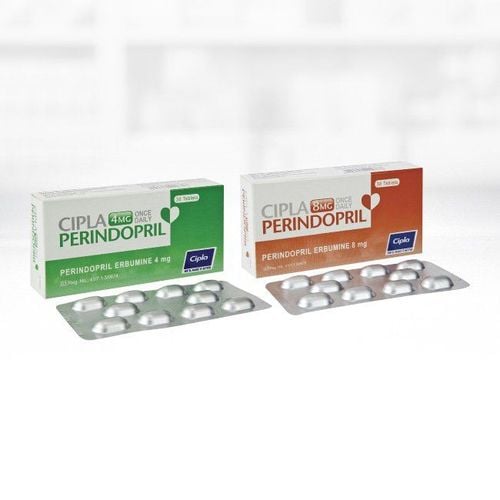This is an automatically translated article.
The article is professionally consulted by Master, Doctor Do Nguyen Thuy Doan Trang - Head of Extracorporeal Circulation Team - Cardiovascular Center - Vinmec Central Park International General Hospital. The doctor is a leading expert in Extracorporeal Circulation in cardiac surgery and cardiac resuscitation, Cardiovascular medical treatment.Rheumatoid disease causes damage to many organs, mainly the heart, joints, nervous system, skin and subcutaneous tissue... in which the most dangerous damage is in the heart. Rheumatic heart disease is the leading cause of heart disease in children aged 5-15 years. So is rheumatic heart disease in children preventable? Let's find out in the article below.
1. What is rheumatic heart disease in children?
Acute rheumatic fever is also known as rheumatic fever. This is an immune system-mediated disease associated with streptococcus (group A beta-hemolytic streptococcus) infections. In addition to joint damage, the disease also damages the heart, connective tissue under the skin, and sometimes brain damage.
2. Manifestations of rheumatic heart disease in children
Manifestations of rheumatic heart disease in children appear 2-4 weeks after streptococcal infection. Damage to the myocardium and endocardium is predominant. Myocarditis is often associated with damage to the endocardium and pericardium.The most common lesions of endocarditis are mitral regurgitation and stenosis, and aortic regurgitation. The condition is often very serious: high fever, pale blue, shortness of breath, very fast heart beat, arrhythmia, high risk of death...
Neurological manifestations are late symptoms of rheumatic heart disease, appearing for many weeks or months after streptococcal infection, which is rapid, involuntary, directionless, aimless movements, which increase with emotion, disappear during sleep.
3. Causes of rheumatic heart disease in children
The main cause of rheumatic fever is infection with group A hemolytic streptococci of the upper respiratory tract. Therefore, in developed countries, children are rarely affected by this disease. The reason why our country has a relatively high rate of children suffering from rheumatic heart disease is due to poor sanitation and nutrition. .The disease progresses silently, almost only when complications in the heart are discovered. About 50% of people with valvular heart disease are due to rheumatic heart disease.
Rheumatic heart disease and pharyngitis have a close relationship, it has been studied and found that there is a marked increase in anti-Streptolysin O antibodies in the serum of patients with rheumatic heart disease.
The disease is not caused by strep directly, but through an immune mechanism. After about 3 weeks of upper respiratory tract infection, new patients will have rheumatic heart disease, of which 3% of children infected with group A strep will develop rheumatic heart disease, 50% of patients have previously had rheumatic fever. rheumatic heart disease will be at risk of recurrence.
4. Complications of rheumatic heart disease in children
In the acute phase, the patient can be affected by myocarditis leading to acute heart failure or sometimes life-threatening arrhythmias.Patients also often have severe joint pain that may be accompanied by swelling, heat, and redness. However, this arthritis leaves little sequelae. Brain effects are also frightening, with damage to the extrapyramidal system causing chorea or choreography. Fortunately, most brain injuries recover without leaving any sequelae.
The most important problem of rheumatic fever is the recurrence and progression leading to irreversible damage to the heart valves, then called rheumatic heart disease. These injuries are becoming more and more severe, causing severe effects for patients in terms of quality of life as well as life expectancy.
The most common rheumatic heart diseases are mitral stenosis, mitral regurgitation, aortic regurgitation... or a combination of multivalve lesions. Consequently, if these rheumatic heart valve diseases are not treated in time, they will cause heart failure, or the patient may also have acute complications such as embolism, acute pulmonary edema, arrhythmia...
5. Can childhood rheumatic heart disease be prevented?
Although rheumatic heart disease in children is very dangerous, it is completely preventable by following lifestyles and activities such as: keeping the living environment clean, cleaning the body and the nose and throat area regularly and cleanly. , keep warm neck, chest, nose and throat in winter, eat enough nutrients to improve resistance.Children with sore throat should see a doctor for instructions on appropriate medication. In the case of children with strep throat, they need to drink or inject antibiotics.

Children who have ever had rheumatic heart disease and have sequelae of valvular stenosis must keep their teeth clean, brush their teeth after each meal to prevent oral infections that can lead to bacteremia and endocarditis.
When a tooth is extracted or a procedure or surgery is required, it is necessary to inform the doctor of heart disease in order to be given prophylactic antibiotics.
Parents must have their child re-examined every 4 weeks, 3 or 6 months depending on the doctor's instructions. Do not skip the follow-up examination because the disease may recur and get worse.
So far there is no vaccine against streptococci, so timely diagnosis and treatment of streptococcal infections is still the most effective method to prevent rheumatic heart disease.
Children's rheumatic heart disease has very dangerous complications, so early diagnosis and timely treatment are extremely important. As soon as the child shows signs of illness, parents should take the child to a medical facility.
Please dial HOTLINE for more information or register for an appointment HERE. Download MyVinmec app to make appointments faster and to manage your bookings easily.














